Erik S. Gellman - The Gospel of the Working Class: Labors Southern Prophets in New Deal America
Here you can read online Erik S. Gellman - The Gospel of the Working Class: Labors Southern Prophets in New Deal America full text of the book (entire story) in english for free. Download pdf and epub, get meaning, cover and reviews about this ebook. year: 2011, publisher: University of Illinois Press, genre: Detective and thriller. Description of the work, (preface) as well as reviews are available. Best literature library LitArk.com created for fans of good reading and offers a wide selection of genres:
Romance novel
Science fiction
Adventure
Detective
Science
History
Home and family
Prose
Art
Politics
Computer
Non-fiction
Religion
Business
Children
Humor
Choose a favorite category and find really read worthwhile books. Enjoy immersion in the world of imagination, feel the emotions of the characters or learn something new for yourself, make an fascinating discovery.

- Book:The Gospel of the Working Class: Labors Southern Prophets in New Deal America
- Author:
- Publisher:University of Illinois Press
- Genre:
- Year:2011
- Rating:4 / 5
- Favourites:Add to favourites
- Your mark:
The Gospel of the Working Class: Labors Southern Prophets in New Deal America: summary, description and annotation
We offer to read an annotation, description, summary or preface (depends on what the author of the book "The Gospel of the Working Class: Labors Southern Prophets in New Deal America" wrote himself). If you haven't found the necessary information about the book — write in the comments, we will try to find it.
In this exceptional dual biography and cultural history, Erik S. Gellman and Jarod Roll trace the influence of two southern activist preachers, one black and one white, who used their ministry to organize the working class in the 1930s and 1940s across lines of gender, race, and geography. Owen Whitfield and Claude Williams, along with their wives Zella Whitfield and Joyce Williams, drew on their bedrock religious beliefs to stir ordinary men and women to demand social and economic justice in the eras of the Great Depression, New Deal, and Second World War.
Williams and Whitfield preached a working-class gospel rooted in the American creed that hard, productive work entitled people to a decent standard of living. Gellman and Roll detail how the two preachers galvanized thousands of farm and industrial workers for the Southern Tenant Farmers Union and the Congress of Industrial Organizations. They also link the activism of the 1930s and 1940s to that of the 1960s and emphasize the central role of the ministers wives, with whom they established the Peoples Institute for Applied Religion. This detailed narrative illuminates a cast of characters who became the two couples closest allies in coordinating a complex network of activists that transcended Jim Crow racial divisions, blurring conventional categories and boundaries to help black and white workers make better lives. In chronicling the shifting contexts of the actions of Whitfield and Williams, The Gospel of the Working Class situates Christian theology within the struggles of some of Americas most downtrodden workers, transforming the dominant narratives of the era and offering a fresh view of the promise and instability of religion and civil rights unionism.Erik S. Gellman: author's other books
Who wrote The Gospel of the Working Class: Labors Southern Prophets in New Deal America? Find out the surname, the name of the author of the book and a list of all author's works by series.

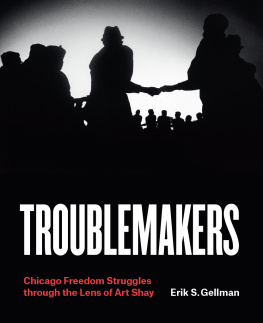
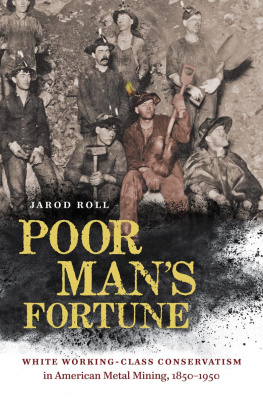
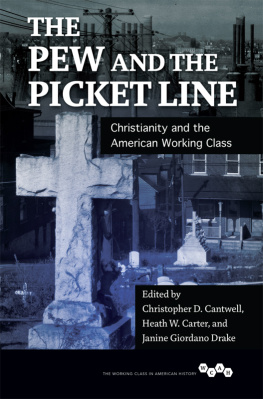
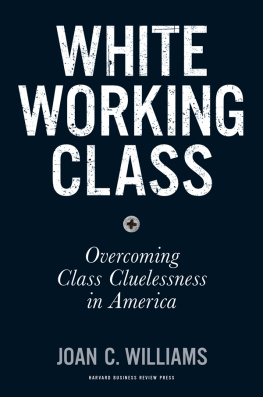
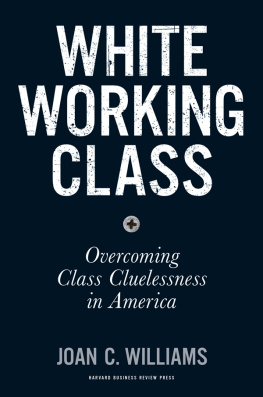
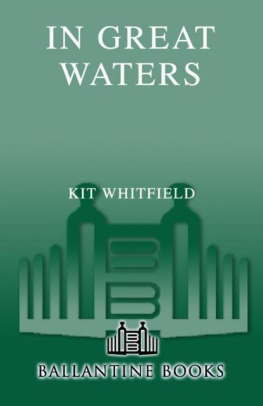


 This book is printed on acid-free paper.
This book is printed on acid-free paper.